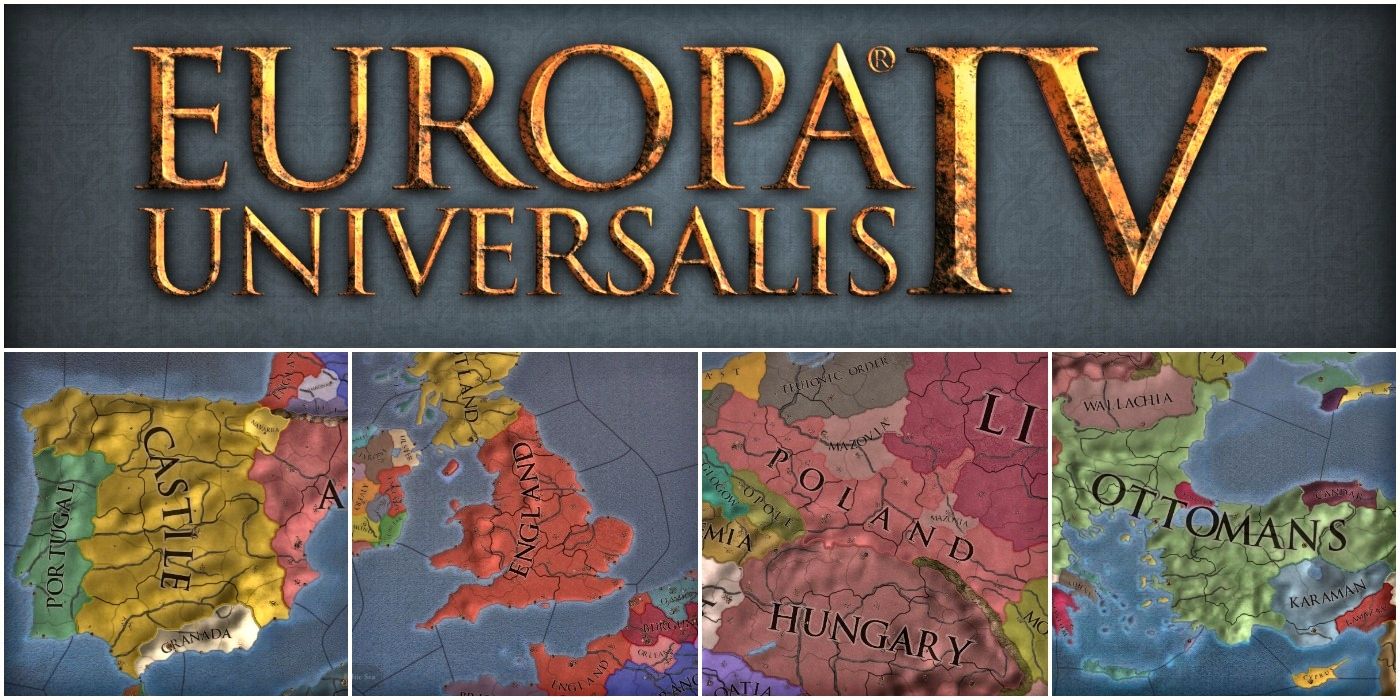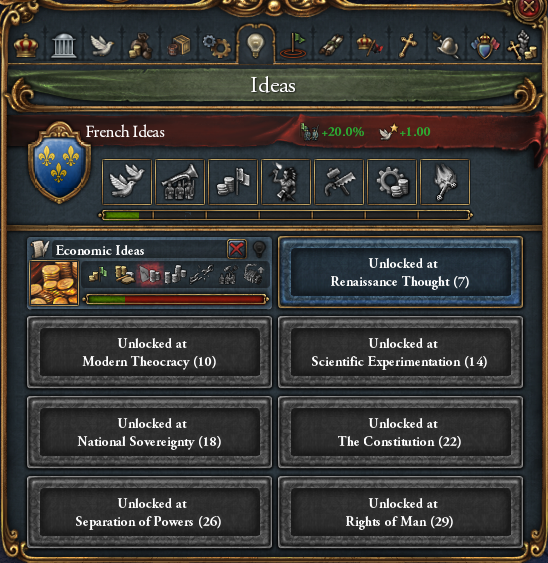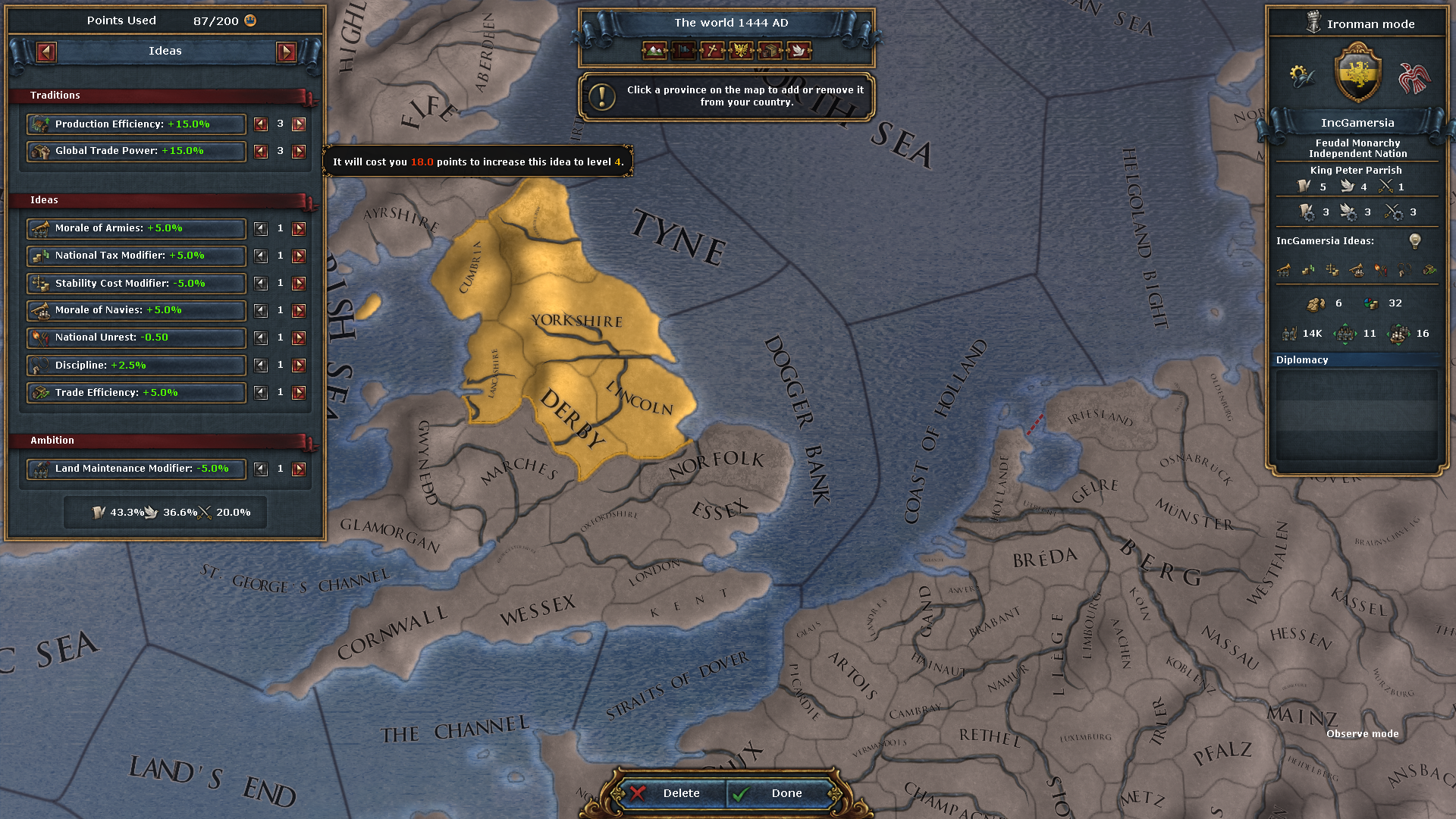
You wouldn't ever expect a game of Civilization to have a historical outcome-its scope is far too broad-but EU4 makes accurate outcomes seem plausible. What separates Europa Universalis from most other strategy games is its intense focus on being historical (for example, you can only play on the real-world map). The real-time aspect isn’t entirely necessary, but Paradox has been using the system for nearly 15 years now, and it works well enough. This is all done at a real-time pace, but it's much less StarCraft than it is Civilization – you'll be slowing, pausing, and accelerating time while making grand strategic decisions about what provinces to target, or where building trade will be most efficient, instead of the tactical choices of most RTS games. It’s mostly liberating, if occasionally lacking in validation when it won’t acknowledge my total domination with a “You Win!” screen. And because there aren’t any victory conditions apart from a nebulous point system at the end of a game, EU4 is all about self-defined goals within historical settings. From rising empires like France and Russia on one hand, to the Creek in North America, or Ming China, or the merchant republic of Venice, the wide selection provides a solid amount of variety.



My colonial wars with Russia comprise a perfectly normal set of events in EU4, which lets you take control of any nation on the map, as drawn in the age of the Renaissance and Enlightenment (from 1444 to 1820).

What makes Europa Universalis IV special, in a way that most sandbox-style strategy games fail, is that it’s unusually free of annoyances and contradictions that get in the way of enjoying alternate histories.


 0 kommentar(er)
0 kommentar(er)
